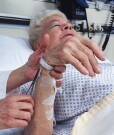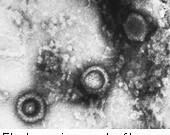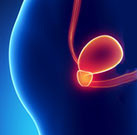Hospitalizations After Sepsis Resolution Often Preventable
Readmissions often for diseases, conditions that can be treated after first discharge
Surgery Seldom Needed for Fracture of Proximal Humerus
In elderly, healing was just as efficient -- and safer -- when arm was immobilized in sling
FDA Approves Unituxin for High-Risk Neuroblastoma
First approval for a therapy aimed specifically to treat the rare pediatric cancer
HSV-2 Vaccine Shows Promise in Experimental Research
Study in mice hints at the success of a vaccine against the virus
The Endocrine Society, March 5-8
The Endocrine Society's 97th Annual Meeting and Expo The annual meeting of The Endocrine Society (ENDO 2015) was held from March 5 to...
Statins May Help Slow Progression of Prostate Cancer
Findings among men taking a statin alongside androgen deprivation therapy
AAMC: Significant Shortfall of Physicians Projected for 2025
Demand for physicians increasing faster than supply; shortfall expected to reach 46,100 to 90,400 by 2025
Labiaplasty Considered Safe, With High Patient Satisfaction
However, current practices remain greatly diverse
Subthreshold Mania May Mean Bipolarity in High-Risk Youth
Subthreshold episodes are a diagnostic risk factor in offspring of parents with bipolar disorder
No Link Found Between Vitamin D Level and Fatal Prostate Cancer
Also, no significant associations found between vitamin D-related SNPs and fatal prostate cancer














